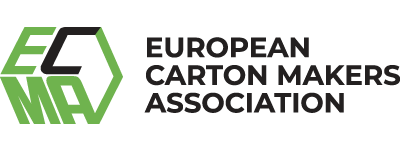ECMA Statement PFAS - January 2020
In recent years appeared regularly alerting studies on the presence of fluorinated substances (PFAS) in food contact materials. Typically, those substances are - in the carton supply chain for a limited number of specific applications - introduced at the stage of the paper and board manufacturing, as surfactants (surface active agents) to make the food contact material water and oil repellent. Within the carton sector fluorinated substances may for instance still be found in certain boxes for popcorn and fast food.
PFAS are a large group of chemicals (at the least 4000 different compounds) of which especially certain categories are questioned from an environmental and human health perspective as they are persistent and bio accumulative and are also suspected to be carcinogenic and endocrine disruptors.
A number of fluorinated compounds are however also present on the Union list of the Plastics Regulation (EU) No 10/2011 or mentioned in the German reference legislation BfR 36 on the manufacturing of paper and board, which means those substances are - with restrictions - allowed for use.
The most visible recent development is the announced Danish legislation on the use of PFAS.
Denmark notified, their legislation to ban from July 2020 on, the placement on the market of food contact materials made of cardboard and paper if perfluoroalkyl and polyfluoroalkyl substances (PFAS) have been used.
In this context ECMA recommended its members producing for Danish customers or customers exporting to Denmark, to verify with their board suppliers the availability of fluorine free alternatives.
Even if carton makers are not in relation with customers working for the Danish market, it is - in view of compliance with Article 3 of the Food Contact Materials Framework Regulation (EC) 1935/2004 - good practice to avoid fluorinated compounds on used substrates, which are not present on any positive lists and in general to investigate the available alternatives.
As for other contaminants it needs to be stressed the exposure to PFAS is not only related to the migration from packaging.
An EFSA scientific opinion from December 2018 mentions how those substances are as persistent contaminants well present in the environment, leading to exposure also via drinking water and food categories such as fish and other seafood, meat and meat products, eggs and egg products, milk and dairy products.
ECMA, the European Carton Makers Association
Contact: Mike Turner, Managing Director
Tel. +31 70 312 39 11
E-mail: mturner@ecma.org
